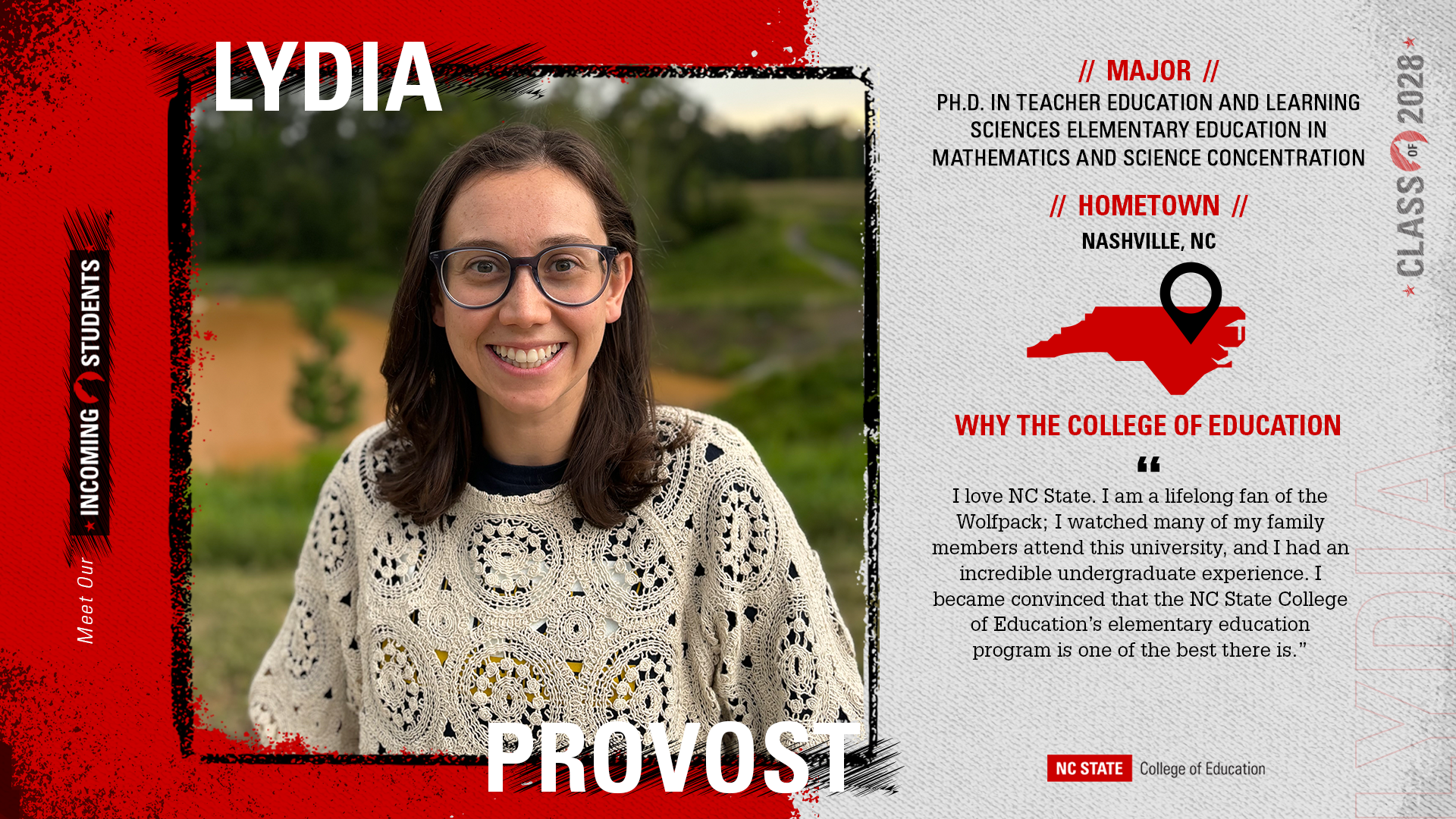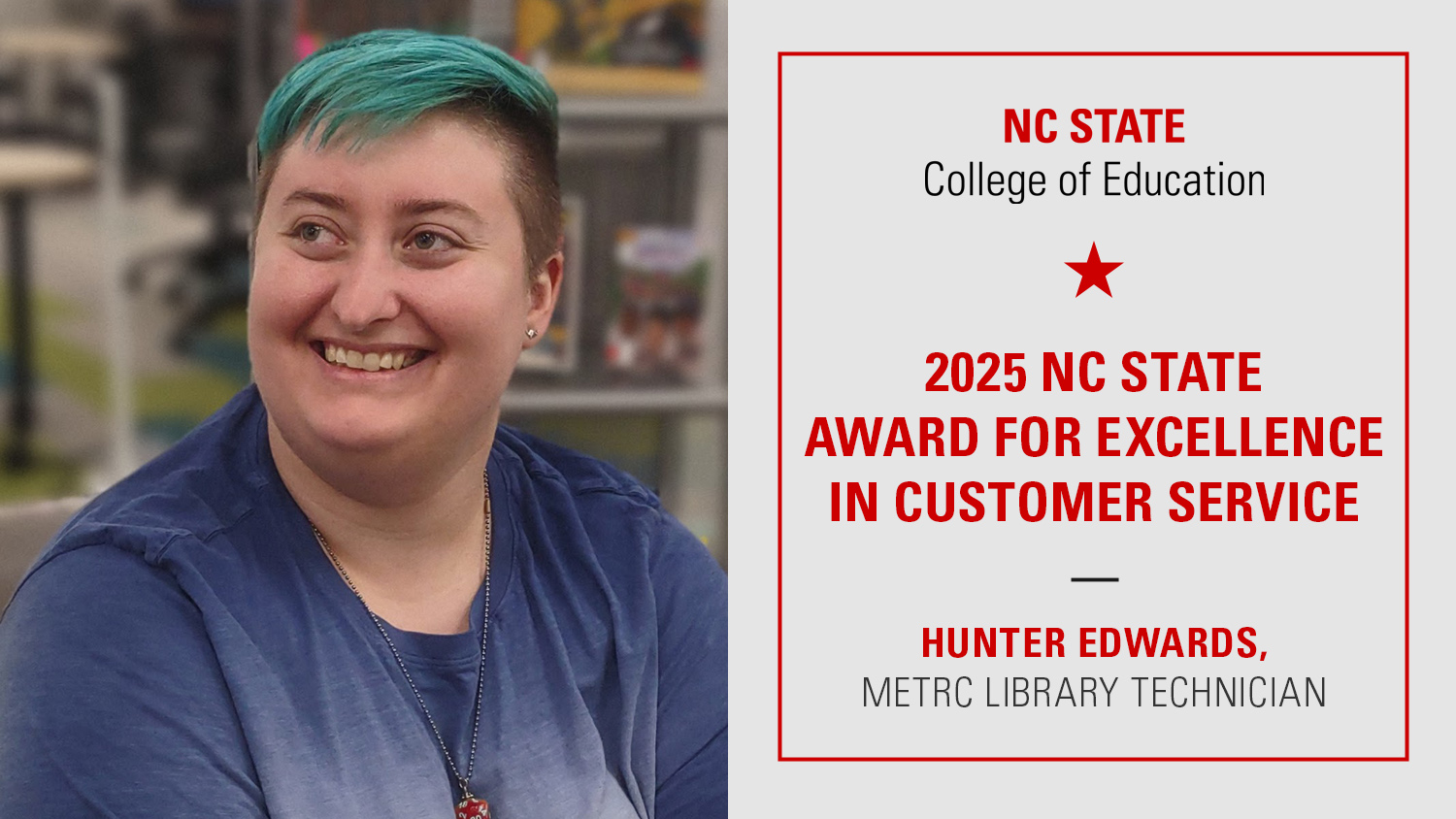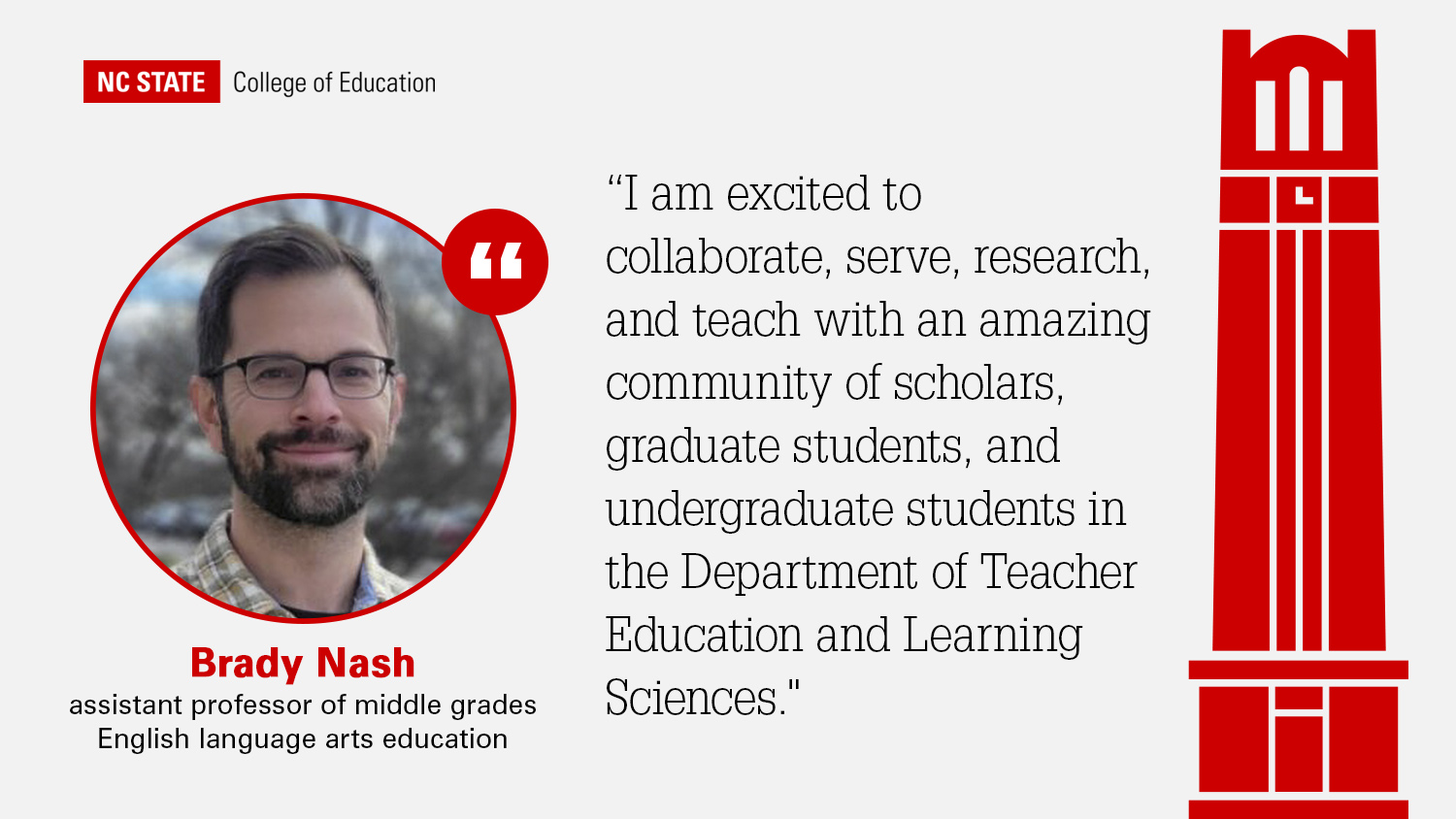Lydia Provost ’19: ‘I Am Interested in Diving Further Into the Language That We Use When Teaching Mathematical Thinking’

This is part of a “Meet Our Incoming Students” series in which the College of Education will introduce some of its first-year, transfer and graduate students who will join us this fall.
As an elementary education major, Lydia Provost ’19 loved her time at NC State and, after she graduated, she felt prepared to make a difference in the lives of her young students.
Now, after four years in the classroom, she is returning to the College of Education to earn her doctoral degree and, one day, influence the next generation of teachers.
Meet Lydia:
Hometown: Nashville, North Carolina
Hobbies and Interests: Reading, being in my yard, huck embroidery (also known as Swedish weaving) and traveling
What is your educational background?
Bachelor of science in elementary education from NC State, class of 2019; Master’s of Theological Studies from Shepherds Theological Seminary, class of 2020
What is your professional background?
I have taught fourth grade for the past four years at Swift Creek Elementary School in Wake County.
Why did you choose the NC State College of Education?
I love NC State. I am a lifelong fan of the Wolfpack; I watched many of my family members attend this university, and I had an incredible undergraduate experience. I became convinced that the NC State College of Education’s elementary education program is one of the best there is.
In the classroom, I was able to incorporate math routines and practices, design rigorous and captivating learning experiences, and use data to drive my instruction, all thanks to what I had learned at NC State. When I was deciding to continue my learning, it was the obvious choice.
Why did you choose your concentration?
The content in elementary mathematics has stolen my heart. I find great joy in watching students progress through the early stages of arithmetic. Fractions are incredibly complex, but young learners are able to wrestle with them and comprehend them in ways that we take for granted.
What are your research interests?
I am interested in diving further into the language that we use when teaching mathematical thinking. Often, the language we hear around us inhibits mathematical thinking and becomes a stumbling block for young learners.
How will this program help you accomplish your goals?
This program will broaden my opportunities to influence future teachers, similarly to the way that I was influenced as a beginning teacher. My goal is to help other teachers feel prepared and adept to engage their students with fruitful mathematical experiences that will lead to rich mathematical understanding.
Why did you choose education?
My love of learning prompted me to choose education. I cherish the thought of helping young people fall in love with learning as well, because I know that this love is unstoppable. I want to equip students to find the passion they need to work hard and accomplish their goals, and I believe that teaching is how I might best do that.
- Categories:


